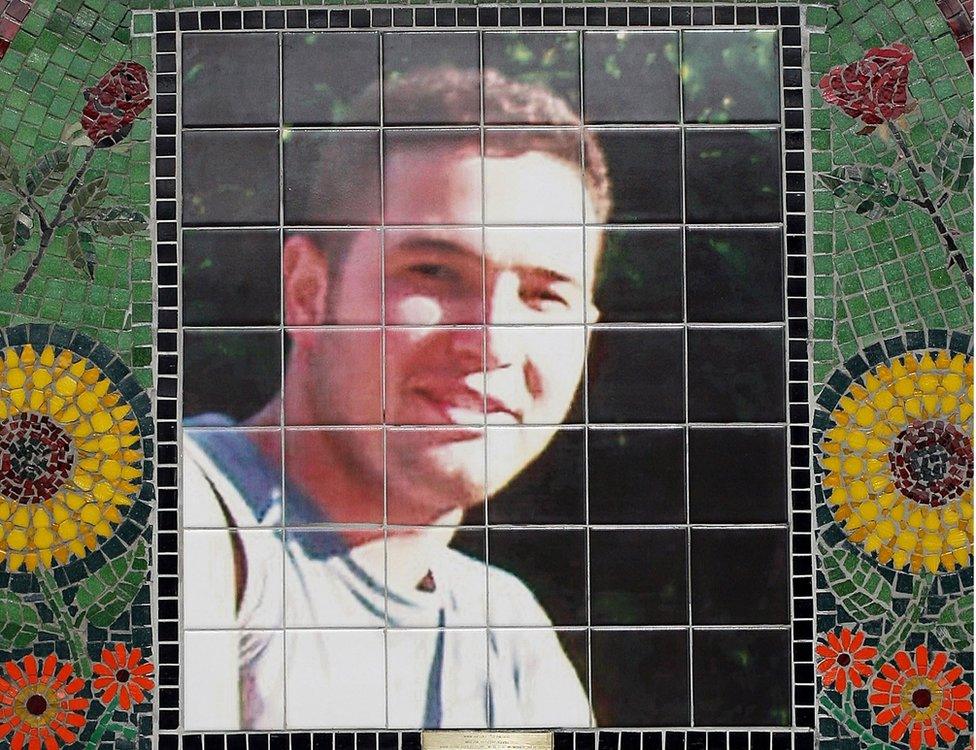Cressida Dick appointed as first female Met Police chief
- Published
Cressida Dick says becoming the new Met chief is an "enormous privilege"
Cressida Dick is the new Metropolitan Police commissioner, becoming the first woman to take charge of London's police force in its 188-year history.
She succeeds Sir Bernard Hogan-Howe, who announced his retirement last year.
Ms Dick, previously the national policing lead on counter-terrorism, said she was "thrilled and humbled".
But her appointment was criticised by the family of Jean Charles de Menezes, who was wrongly shot dead during an operation she led in 2005.
The Brazilian electrician was killed two weeks after the 7/7 London Bombings when he was mistakenly identified as a terror suspect.
A jury later found the Met had broken health and safety laws, but found there was "no personal culpability for Commander Cressida Dick".
Ms Dick, 56, left the Met for the Foreign Office after 31 years of service in December 2014.
Londoners' to-do list for the new chief
She was chosen for the commissioner's job ahead of National Police Chiefs' Council chairwoman Sara Thornton, Essex Police chief constable Stephen Kavanagh and Scotland Yard's Mark Rowley.
Her appointment means that for the first time all three top policing jobs in the UK are held by women: the Met commissioner, the head of the National Crime Agency and the president of the National Police Chief's Council.
Ms Dick's statement said: "This is a great responsibility and an amazing opportunity.
"I'm looking forward immensely to protecting and serving the people of London and working again with the fabulous women and men of the Met.
"Thank you so much to everyone who has taught me and supported me along the way."

Big decisions and intense scrutiny

By Danny Shaw, home affairs correspondent
The new commissioner will find that when it comes to leading the Met, there's no off-switch. It's a policing organisation like no other in the UK, with a budget of £3bn, a workforce of 43,000 and responsibility for keeping everyone in London - from Barking to Buckingham Palace, from West Norwood to Westminster - safe.
The leader of Britain's biggest and most influential police force will come under pressure to make early decisions: on whether to roll out controversial spit-guards, on how to police the Notting Hill Carnival and if Tasers should be extended to all officers.
She'll face intense scrutiny from the media, which has a tendency to escalate stories of local difficulties into ones of national importance. And she'll be expected to provide regular updates to the London Assembly, MPs on the home affairs committee, the mayor of London and the home secretary.

Theresa May said Ms Dick had the "exceptional qualities" needed to lead the Met.
"Her skills and insights will be crucial in shaping the Met as the job of police reform continues, co-ordinating the national response to the ongoing threat of terrorism and serious criminality as well as keeping Londoners safe," the prime minister continued.
"In addition, I know she will be a champion for the most vulnerable who the police are there to protect."
Home Secretary Amber Rudd said Ms Dick was taking on "one of the most demanding, high-profile and important jobs in UK policing, against the backdrop of a heightened terror alert and evolving threats from fraud and cyber crime".
Sir Bernard said his replacement would be "a brilliant beacon for women within and beyond this force".
And London Mayor Sadiq Khan said she was the "best possible person" to take the Met forward.
"She has already had a long and distinguished career, and her experience and ability has shone throughout this process."

Ms Dick was 'gold command' on the day Jean Charles de Menezes was shot dead
But Mr de Menezes' cousins Patricia Armani and Alex Pereira said her appointment was "offensive" to his memory and sent "the message... that police officers can act with impunity".
Ms Armani said: "Our family is disappointed that she has now been appointed for such an important role at a time there are many more threats to public security in the form of terrorism.
"What are the guarantees that more innocent people won't be killed by the police in London?"
Rigby killing
Ms Dick's new post commands a salary of £270,648, plus benefits.
She first joined the Met in 1983 after a brief spell in accountancy following her graduation from Oxford University.
In 2009, she became the first woman to be appointed an assistant commissioner at the force, later becoming the national lead for counter-terrorism across the UK.
Her work also included leading the reinvestigation into the murder of Stephen Lawrence and the police response to the killing of soldier Lee Rigby.
In 2014, she left Scotland Yard to take up a highly sensitive and undisclosed director-general post at the Foreign Office.
Her other experience includes taking on internal reforms of Scotland Yard and being one of the two senior officers in charge of security at the London 2012 Olympic Games.
- Published22 February 2017
- Published22 February 2017
